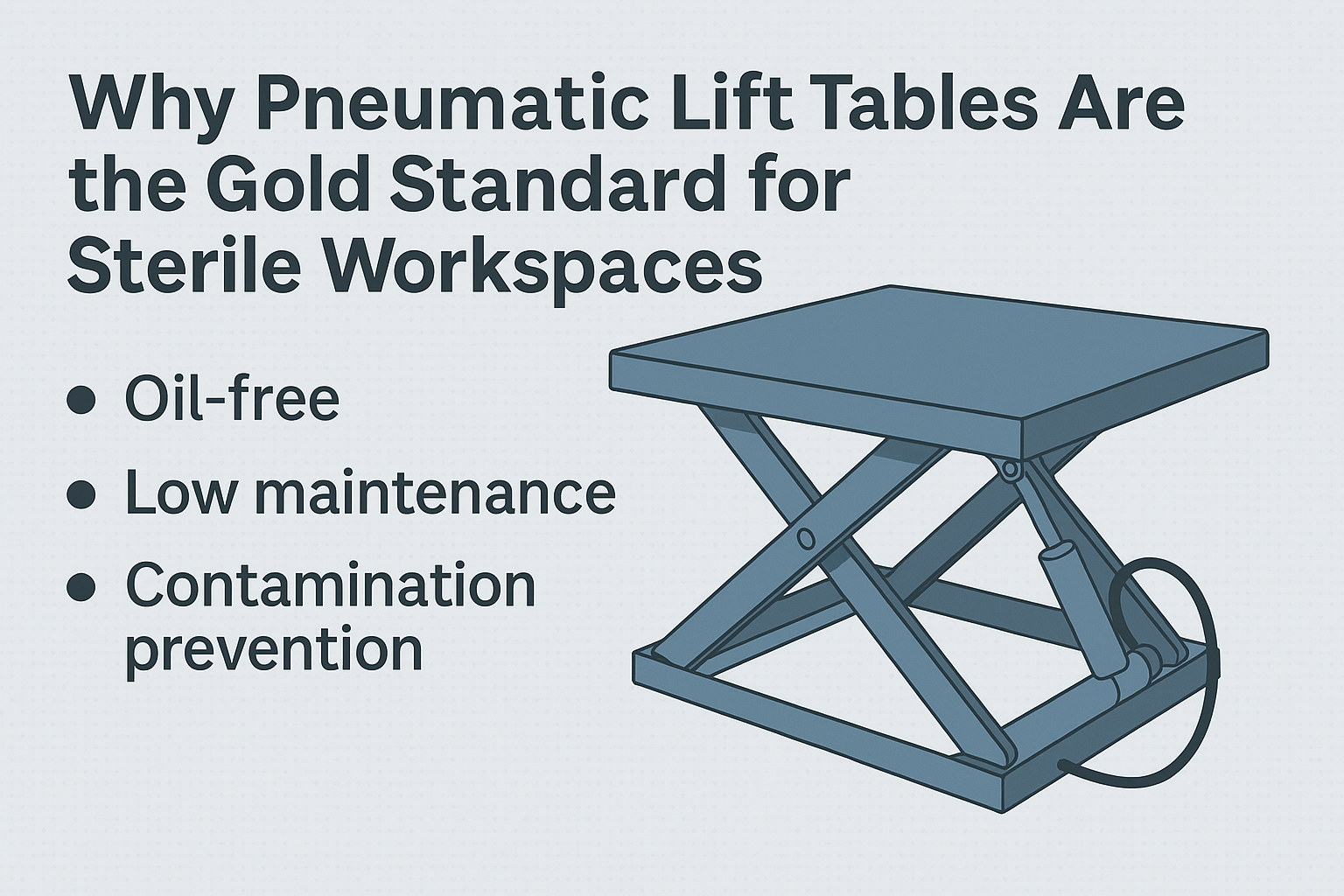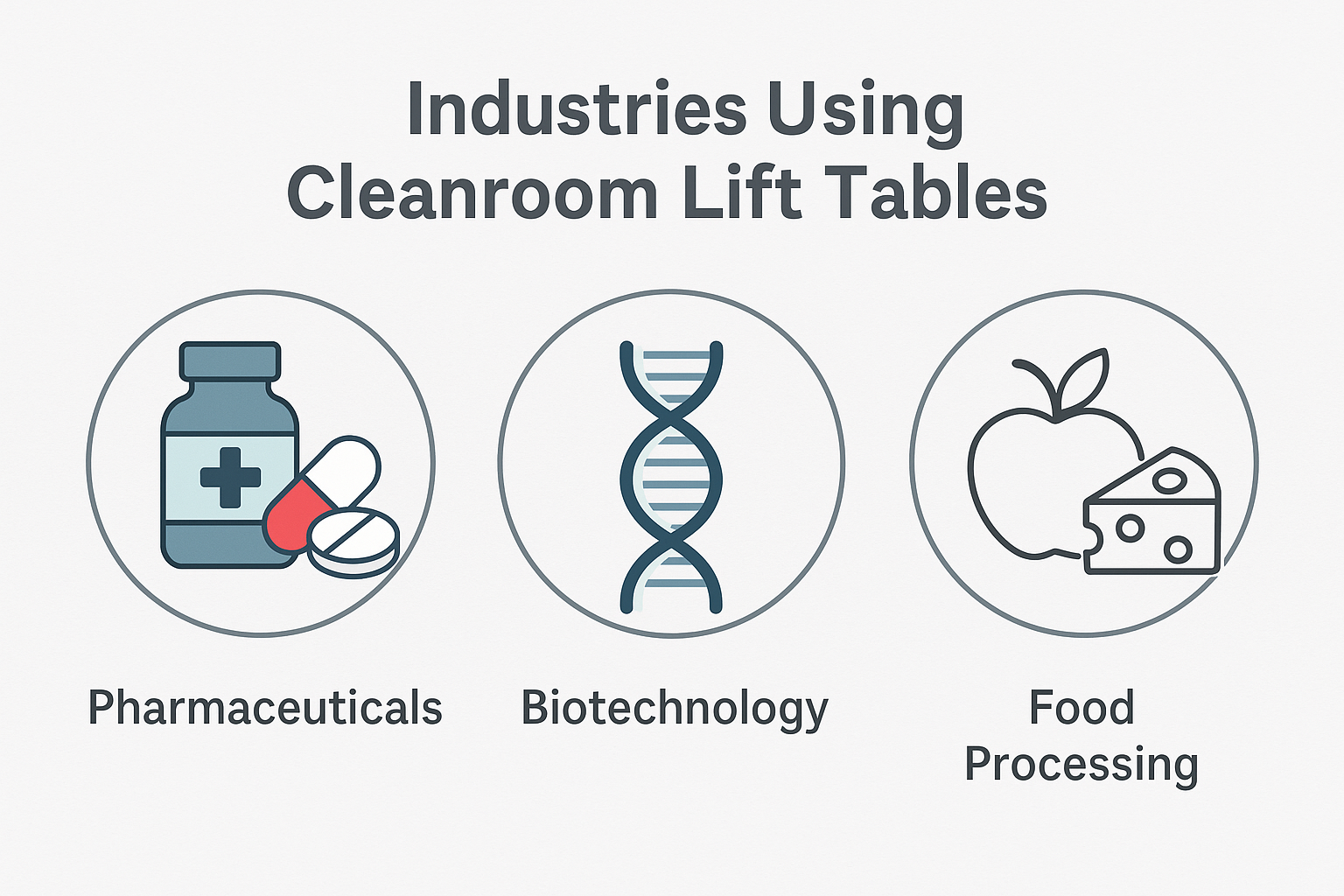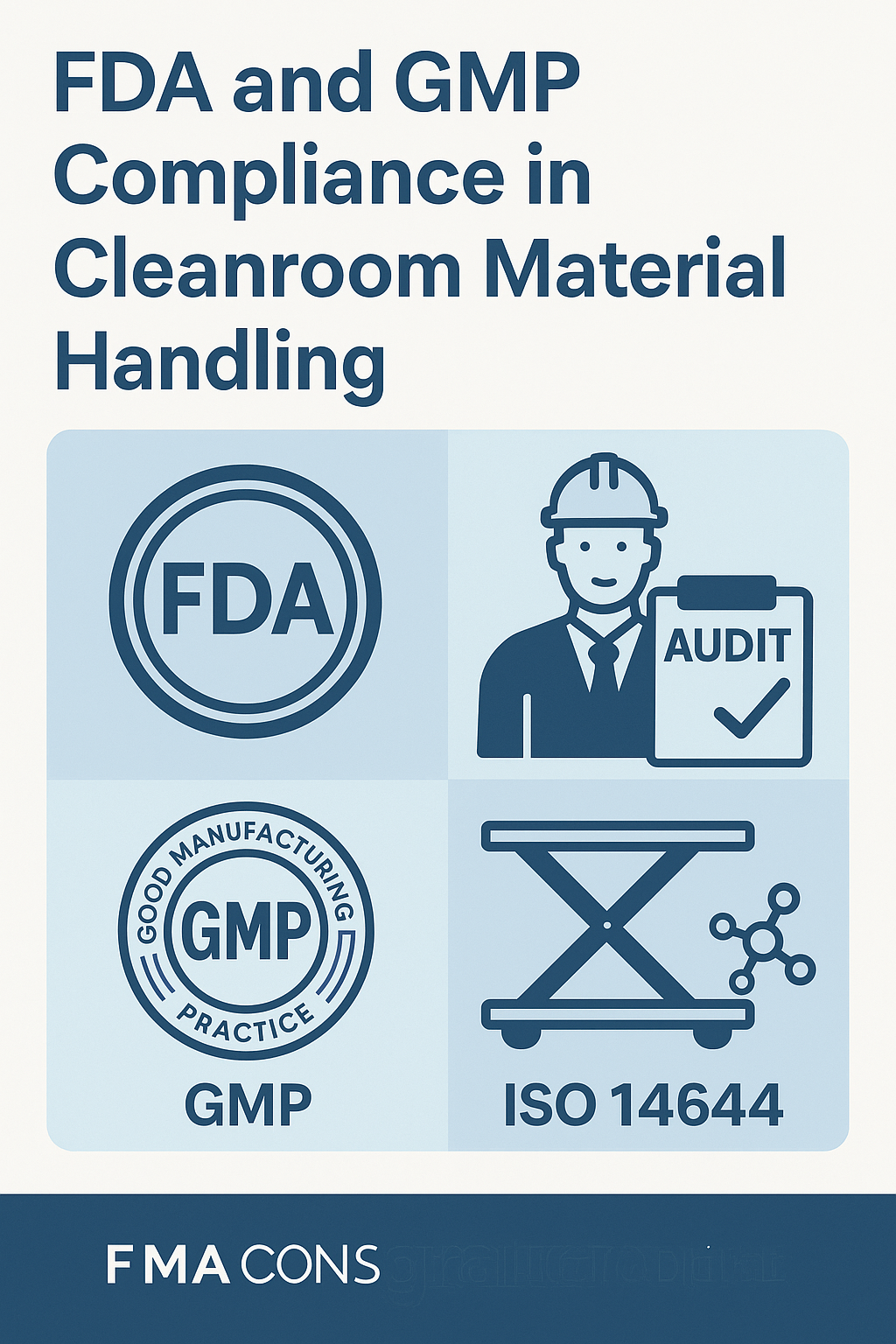
Why Pneumatic Lift Tables Are the Gold Standard for Sterile Workspaces
Explore why pneumatic lift tables outperform hydraulic and electric options in sterile environments. Clean, safe,
Cleanroom lift tables play a crucial role in many industries where cleanliness, precision, and safety are non-negotiable. From pharmaceuticals to microelectronics, the need for sterile, ergonomic, and compliant material handling solutions is growing. If you’re wondering whether cleanroom lift tables are right for your facility, this guide breaks down the top five industries that depend on them—and why.
In pharmaceutical plants, even microscopic contaminants can render a product unsafe or ineffective. Cleanroom lift tables made from 304L or 316L stainless steel meet FDA and GMP requirements and offer smooth, non-porous surfaces for fast, thorough sanitization. Their role? Lifting, transporting, and staging raw materials or finished goods within ISO-classified areas without introducing risk.
Whether you’re compounding drugs or packaging vials, height-adjustable tables support ergonomic efficiency while minimizing particle spread.
In biotech, researchers frequently work with live cultures, enzymes, and other sensitive materials. Cleanroom lift tables allow for the safe transfer and positioning of delicate tools, instruments, or samples across workstations without physical strain or contamination risk. Pneumatic or electric lift tables with anti-vibration and low-noise features are especially useful in these precision-dependent environments.
The semiconductor industry operates in some of the most stringent cleanroom environments, often requiring ISO Class 1–5 standards. Electrostatic discharge (ESD), airborne particulates, and vibration can damage chips during production. Stainless steel lift tables designed with ESD-safe materials and sealed joints provide clean, static-free positioning of wafers, tools, and test equipment.
Adjustable-height tables help engineers and technicians work more comfortably during wafer inspection or assembly tasks, minimizing fatigue and error.
Cleanroom lift tables support sanitary food handling, especially in packaging, sorting, or quality control processes. Equipment must be easy to clean, resistant to acidic and alkaline cleaning agents, and comply with USDA, FDA, and HACCP standards.
Tables designed for washdown environments allow operators to adjust load heights without cross-contaminating products. In multi-stage processing lines, cleanroom tables speed up transitions while reducing manual labor.
Medical devices such as surgical instruments, implants, and diagnostics must be assembled under sterile, tightly regulated conditions. Lift tables ensure that parts are moved between assembly stages efficiently, without worker fatigue or cleanliness compromise.
Height-adjustable platforms improve line ergonomics and throughput. When paired with rollers or turntables, they can also be customized for complex workflows that require safe, multi-angle access.
Even if your business isn’t in these top five, chances are high that if your facility involves sterile zones, sensitive materials, or operator-heavy workflows, cleanroom lift tables can bring major operational benefits. These include:
The industries above rely on these specialized tables because they provide consistency, safety, and compliance under pressure. If your processes require sterility, precision, or ergonomic flexibility, cleanroom lift tables are more than a convenience—they’re a strategic advantage.
🔗 Explore models tailored for your industry: Cleanroom Lift Tables – Industrial Man Lifts

Explore why pneumatic lift tables outperform hydraulic and electric options in sterile environments. Clean, safe,

From pharma to semiconductors, see how top industries use cleanroom lift tables to maintain compliance,

Understand what makes a lift table truly FDA and GMP compliant. Explore the must-have features,
Copyright 2025 All Rights Reserved – Industrial Man Lifts